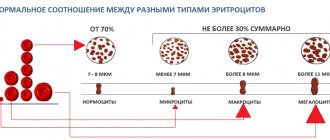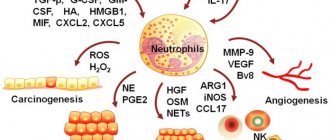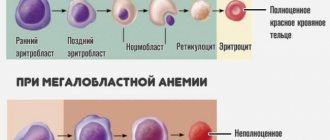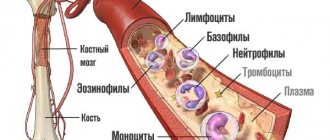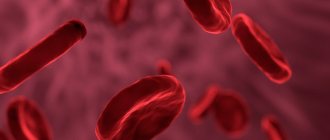3 September 2021 11:09
Quantity
Alcohol abuse is a pressing problem of modern society, which gives rise to crimes, accidents, injuries and poisoning in all segments of the population. Alcohol addiction is especially difficult to perceive when it concerns the most promising part of society - students. The mortality rate of the working-age population due to the use of alcoholic beverages ranks high. Scientists estimate alcoholism as a collective suicide of the nation. Addiction to alcohol, like cancer, destroys the personality of an individual and society as a whole from within.
How does alcohol affect the human body? Let's look at the effect of alcoholic drinks on all organs and find out how alcohol affects the brain, liver, kidneys, heart and blood vessels, nervous system, as well as men's and women's health.
Effect of alcohol on the brain
All organs suffer from the negative effects of alcoholic beverages. But it’s the neurons—the brain cells—that get the most. People know how alcohol affects the brain from the feeling of euphoria, high spirits and relaxation.
However, at the physiological level, at this time, destruction of cells of the cerebral cortex occurs even after small doses of ethanol.
- Normally, the blood supply to the brain occurs through thin capillaries.
- When alcohol enters the blood, blood vessels narrow and red blood cells stick together, forming blood clots. They clog the lumen of the brain capillaries. In this case, the nerve cells experience oxygen starvation and die. At the same time, a person feels euphoria, without even suspecting the destructive changes in the cerebral cortex.
- Capillaries from congestion swell and burst.
- After drinking 100 g of vodka, a glass of wine or a mug of beer, 8 thousand nerve cells die forever. Unlike liver cells, which can regenerate after alcohol withdrawal, nerve cells in the brain do not.
- Dead neurons are excreted in urine the next day.
Thus, under the influence of alcohol on blood vessels, an obstacle to normal blood circulation in the brain is created. This is the cause of the development of alcoholic encephalopathy and epilepsy.
A postmortem autopsy of the skull of alcohol abusers naturally reveals destructive pathological changes in their brain:
- reducing its size;
- smoothing of convolutions;
- the formation of voids in place of dead areas;
- foci of pinpoint hemorrhages;
- the presence of serous fluid in the cavities of the brain.
With long-term abuse, alcohol affects the structure of the brain. Ulcers and scars form on its surface. Under a magnifying glass, the brain of an alcoholic looks like the lunar surface, pockmarked with craters and craters.
How long do alcoholics live?
The life expectancy of those who suffer from alcoholism is significantly reduced. 20% of patients live more than 50 years. Acute heart failure often causes early death in drunkards under 40 years of age. A dangerous habit is fraught with a significant deterioration in quality and a decrease in life expectancy. The risk of leaving this world prematurely increases. There is no clear answer to the question of how long alcoholics live. Much depends on the age at which a person developed a harmful addiction, whether there are associated problems, etc. That is, the life expectancy of a drinker is determined by the strength of the body. Sudden deaths before age 30 are common. The average life expectancy is 48-55 years. However, this is under fortunate circumstances. 25% of addicted people do not live to reach the specified age mark.
Only by stopping drinking in a timely manner does a person suffering from an illness get a chance to prolong their life. However, in many cases, medical assistance cannot be avoided. Then a person will be able to cope with addiction and get rid of addiction.
The effect of alcohol on the nervous system
The human brain is a kind of control panel for the entire body. Its cortex contains centers for memory, reading, movement of body parts, smell, and vision. Poor circulation and cell death of any center are accompanied by shutdown or weakening of brain functions. This is accompanied by a decrease in a person’s cognitive (cognitive) abilities.
The influence of alcohol on the human psyche is expressed in a decrease in intelligence and personality degradation:
- memory impairment;
- decreased IQ;
- hallucinations;
- loss of critical attitude towards oneself;
- immoral behavior;
- incoherent speech.
Under the influence of alcohol on the nervous system, a person’s behavioral reactions change. He loses his modesty and restraint. He does things that he wouldn't do in his right mind. Stops being critical of your emotions. He experiences unmotivated attacks of rage and anger. A person’s personality degrades in direct proportion to the amount and duration of alcohol consumption.
Gradually a person loses interest in life. His creative and labor potential is declining. All this negatively affects career growth and social status.
Alcoholic polyneuritis of the lower extremities develops after prolonged use of ethyl alcohol. Its cause is inflammation of the nerve endings. It is associated with an acute deficiency of B vitamins in the body. The disease is manifested by a feeling of severe weakness in the lower extremities, numbness, and pain in the calves. Ethanol affects both muscles and nerve endings - it causes atrophy of the entire muscular system, which ends in neuritis and paralysis.
Which organs are affected first?
According to the Federal Service for Surveillance on Consumer Rights Protection and Human Welfare, the number of people addicted to alcohol has exceeded 5 million people.
The number of officially registered people with alcohol dependence in our country is at the level of 2% of the country's population over 14 years of age. Alcoholism significantly aggravates the course of cardiovascular diseases and diseases of the digestive system. 62% of suicides, 72% of murders are associated with alcohol abuse. Alcoholism, one way or another, caused the death of about 30% of men and 15% of men (i.e., about 500,000 people die from alcohol per year). All people who drink alcohol at least occasionally experience certain consequences. It all depends on the frequency of drinking alcohol, on the dose drunk, on the person’s immune system and his individual characteristics. Not a single system of the human body remains indifferent to alcohol.
The effect of alcohol on the cardiovascular system
The effect of alcohol on the heart is such that it works under load for 5–7 hours. While drinking strong drinks, your heart rate increases and your blood pressure rises. Full heart function is restored only after 2-3 days, when the body is finally cleansed.
After alcohol enters the blood, a change occurs in the red blood cells - they are deformed due to membrane rupture, stick together, forming blood clots. As a result, blood flow in the coronary vessels is disrupted. The heart, trying to push blood through, increases in size.
The effects of alcohol on the heart when abused include the following diseases.
- Myocardial dystrophy. In place of cells killed as a result of hypoxia, connective tissue develops, which impairs the contractility of the heart muscle.
- Cardiomyopathy is a typical consequence that develops over 10 years of alcohol abuse. It most often affects men.
- Heart arythmy.
- Coronary heart disease - angina pectoris. After drinking alcohol, the release of adrenaline and norepinephrine in the blood increases, which increases oxygen consumption by the heart muscle. Therefore, any dose can cause coronary insufficiency.
- The risk of developing myocardial infarction in heavy drinkers is higher than in healthy individuals, regardless of the condition of the coronary vessels of the heart. Alcohol increases blood pressure, which causes heart attack and premature death.
Alcoholic cardiomyopathy is characterized by hypertrophy (enlargement) of the ventricles of the heart.
The symptoms of alcoholic cardiomyopathy are as follows:
- dyspnea;
- a cough, often at night, that people associate with a cold;
- fast fatiguability;
- pain in the heart area.
Progression of cardiomyopathy leads to heart failure. Shortness of breath is accompanied by swelling of the legs, enlarged liver, and cardiac arrhythmia. When people have heart pain, subendocardial myocardial ischemia is often detected. Drinking alcohol also causes hypoxia - oxygen starvation of the heart muscle. Since alcohol leaves the body over several days, myocardial ischemia persists throughout this time.
Important! If your heart hurts the next day after drinking alcohol, you need to get a cardiogram and consult a cardiologist.
Alcoholic drinks affect heart rate. After heavy drinking of alcohol, various types of arrhythmias often develop:
- paroxysmal atrial tachycardia;
- frequent atrial or ventricular extrasystole;
- atrial flutter;
- ventricular fibrillation, which requires anti-shock treatment measures (often fatal).
The presence of this kind of arrhythmias after taking large doses of alcohol is called “holiday” heart. Heart rhythm disturbances, especially ventricular arrhythmias, are often fatal. Arrhythmias can be regarded as signs of cardiomyopathy.
The effect of alcohol on the human cardiovascular system is a fact that has been scientifically established and substantiated. The risk of these diseases is directly proportional to the consumption of alcoholic beverages. Alcohol and its breakdown product, acetaldehyde, have a direct cardiotoxic effect. In addition, it causes a deficiency of vitamins and proteins and increases blood lipids. During acute alcohol intoxication, the contractility of the myocardium sharply decreases, which leads to a lack of blood in the heart muscle. Trying to compensate for oxygen deficiency, the heart increases contractions. In addition, during intoxication, the concentration of potassium in the blood decreases, which causes rhythm disturbances, the most dangerous of which is ventricular fibrillation.
What happens to the heart when taking high doses of alcohol?
As soon as the heart muscle is exposed to the negative influence of large amounts of alcohol, the following pathological changes are observed:
- the myocardium begins to contract poorly;
- heart rhythm is disturbed (usually towards tachycardia);
- blood oxygen saturation decreases (hence severe shortness of breath);
- The minute volume of blood decreases, due to which the atria and ventricles do not receive important nutrients and oxygen.
Drinking heart patients often develop edema. They suffer from an unpleasant feeling of lack of air. If you ignore all these symptoms, dangerous complications cannot be avoided in the near future.
The effect of alcohol on blood vessels
Does alcohol lower or increase blood pressure? - even 1-2 glasses of wine increases blood pressure, especially in people with hypertension. After drinking alcoholic beverages, the concentration of catecholamines - adrenaline and norepinephrine - increases in the blood plasma, which increase blood pressure. There is a concept called “dose-dependent effect”, which shows how alcohol affects blood pressure depending on its amount - systolic and diastolic pressure increases by 1 mmHg when ethanol increases by 8-10 grams per day. People who abuse alcohol have a 3-fold increased risk of hypertension compared to abstainers.
How does alcohol affect blood vessels? Let's figure out what happens to our blood vessels when drinking alcohol. The initial effect of alcoholic drinks on the vascular wall is dilating. But after this a spasm occurs. This leads to ischemia of the blood vessels of the brain and heart, leading to heart attack and stroke. Alcohol also has a toxic effect on the veins in such a way that the flow of blood through them is disrupted. This leads to varicose veins of the esophagus and lower extremities. People who abuse libations often experience bleeding from the veins of the esophagus, which ends in death. Does alcohol dilate or constrict blood vessels? - these are just stages of its sequential impact, both of which are destructive.
The main damaging effect of alcohol on blood vessels is related to how alcohol affects the blood. Under the influence of ethanol, red blood cells stick together. The resulting blood clots spread throughout the body, clogging narrow vessels. Moving through the capillaries, blood flow becomes significantly more difficult. This leads to disruption of blood supply to all organs, but the greatest danger is to the brain and heart. The body initiates a compensatory reaction - it increases blood pressure in order to push blood through. This leads to heart attack, hypertensive crisis, and stroke.
Heart treatment for alcoholism
To support the functioning of the main organ, alcoholic patients with heart disease are prescribed medications for:
- pain relief;
- reducing the voltage level;
- elimination of degenerative and dystrophic processes in the myocardium;
- normalization of heart rate;
- strengthening the whole body, stimulating the immune system.
It is very important to improve your heart function during the pre-coding phase. But even after coding, cardiotherapy does not stop. The patient consults a cardiologist for as long as necessary.
Take care of your heart - don't drink alcohol. On holidays, if necessary, use only high-quality alcohol and in small quantities. Any drinking is a blow to your heart. It is impossible to predict in advance how strong it will be. It's important to remember this.
Need some advice?
OR CALL A DOCTOR
CALL!
+7
Effect on the liver
It's no secret how harmful alcohol affects the liver. The stage of ethyl alcohol release is much longer than absorption. Up to 10% of ethanol is released in pure form with saliva, sweat, urine, feces and during breathing. That is why after drinking alcohol a person has a specific smell of urine and “fumes” from the mouth. The remaining 90% of ethanol has to be broken down by the liver. Complex biochemical processes occur in it, one of which is the conversion of ethyl alcohol into acetaldehyde. But the liver can only break down about 1 glass of alcohol in 10 hours. Unsplit ethanol damages liver cells.
Alcohol affects the development of the following liver diseases.
- Fatty liver. At this stage, fat in the form of globules accumulates in hepatocytes (liver cells). Over time, it sticks together, forming blisters and cysts in the area of the portal vein, which interfere with the movement of blood from it.
- At the next stage, alcoholic hepatitis develops - inflammation of its cells. At the same time, the liver increases in size. Fatigue, nausea, vomiting and diarrhea appear. At this stage, after stopping ethanol consumption, liver cells are still able to regenerate (recover). Continued use leads to a transition to the next stage.
- Liver cirrhosis is a typical disease associated with alcohol abuse. At this stage, liver cells are replaced by connective tissue. The liver becomes covered with scars; when palpated, it is dense with an uneven surface. This stage is irreversible - dead cells cannot recover. But stopping alcohol consumption stops liver scarring. The remaining healthy cells perform limited functions.
If alcohol consumption does not stop at the stage of cirrhosis, the process progresses to the stage of cancer. A healthy liver can be maintained with moderate consumption.
Important! According to WHO recommendations, the safe dose is 10 grams of alcohol per day for women and 20 grams for men.
The equivalent is a glass of beer or a glass of wine per day. And even with such dosages, you should not drink alcohol every day. It is necessary to allow alcohol to completely leave the body, and this takes 2-3 days.
Decreased blood viscosity
As ethyl alcohol penetrates into the blood, the following occurs:
- relaxation of vascular muscle tissue;
- vasodilation;
- acceleration of blood flow;
- decrease in blood viscosity;
- lowering blood pressure;
- increase in heart rate.
During this period, a person feels great, becomes cheerful, sociable, relaxed, and overly self-confident. There is a slight reddening of the skin, pleasant warmth and a feeling of light heat spread throughout the body, and the frequency of urination increases.
Effect of alcohol on the kidneys
The function of the kidneys is not only the formation and excretion of urine. They take part in balancing the acid-base balance and water-electrolyte balance, and produce hormones.
How does alcohol affect the kidneys? — when consuming ethanol, they go into intensive operation mode. The renal pelvis is forced to pump a large volume of fluid, trying to remove substances harmful to the body. Constant overload weakens the functional ability of the kidneys - over time, they can no longer work constantly in an enhanced mode. The effect of alcohol on the kidneys can be seen after a festive feast by a swollen face and high blood pressure. Fluid accumulates in the body, which the kidneys are unable to remove.
In addition, toxins accumulate in the kidneys, then stones form. Over time, nephritis develops. Moreover, after drinking alcohol, it happens that the kidneys hurt, the temperature rises, and protein appears in the urine. The progression of the disease is accompanied by the accumulation of toxins in the blood, which the liver is no longer able to neutralize and the kidneys to remove.
Lack of treatment leads to the development of renal failure. In this case, the kidneys cannot form and excrete urine. Poisoning of the body with toxins begins - general intoxication with a fatal outcome.
First aid for allergy sufferers
“Every spring and summer I suffer from hay fever. Tell me, if you clean the blood, this problem will go away?” Mikhail, Lipetsk
— Unfortunately, plasmapheresis does not cure chronic allergic diseases. And if somewhere they promised you something like this, it means they are simply trying to scam you out of money. In case of allergies (including allergies to pollen), plasmapheresis is more likely an “ambulance” procedure. It helps to quickly stop attacks of urticaria or Quincke's edema, the threat of anaphylaxis.
But plasmapheresis can still help people suffering from hay fever in some way. If you carry out this procedure, which reduces the level of antibodies in the blood, on the eve of the flowering season of trees and grasses, it will be much easier for you to survive it.
How does alcohol affect the pancreas?
The function of the pancreas is to secrete enzymes into the small intestine to digest food. How does alcohol affect the pancreas? - under its influence, its ducts are clogged, as a result of which enzymes do not enter the intestines, but inside it. Moreover, these substances destroy gland cells. In addition, they affect metabolic processes involving insulin. Therefore, if you abuse alcohol, diabetes can develop.
When subjected to decomposition, enzymes and breakdown products cause inflammation of the gland - pancreatitis. It manifests itself in the fact that after drinking alcohol the pancreas hurts, vomiting appears and the temperature rises. Pain in the lumbar region is girdling in nature. Alcohol abuse affects the development of chronic inflammation, which is a risk factor for breast cancer.
The effect of alcohol on the female and male body
Alcohol affects a woman's body to a greater extent than a man's. In women, the enzyme alcohol dehydrogenase, which breaks down alcohol, is found in lower concentrations than in men, so they get drunk faster. The same factor influences the formation of alcohol dependence in women faster than in men.
Even after consuming small doses, women's organs undergo great changes. Under the influence of alcohol on a woman’s body, reproductive function is primarily affected. Ethanol disrupts the monthly cycle and negatively affects reproductive cells and conception. Drinking alcohol accelerates the onset of menopause. In addition, alcohol increases the risk of cancer of the breast and other organs. With age, the negative effect of alcohol on the female body increases because its elimination from the body slows down.
Alcohol negatively affects important brain structures - the hypothalamus and pituitary gland. The consequence of this is its negative impact on the male body - the production of sex hormones decreases, which is why potency decreases. As a result, family relationships collapse.
Alcohol negatively affects all organs. It has the fastest and most dangerous effect on the brain and heart. Ethanol increases blood pressure, thickens the blood, and disrupts blood circulation in the brain and coronary vessels. Thus, it provokes a heart attack, stroke, and hypertensive crisis. With long-term use, irreversible diseases of the heart and brain develop - alcoholic cardiomyopathy, encephalopathy. The most important organs designed to remove toxins from the body - the liver and kidneys - suffer. The pancreas is damaged and digestion is disrupted. But stopping alcohol intake early in illness can restore cells and stop organ destruction.
Literature:
- Microcirculatory bed and cerebral vessels under conditions of alcohol intoxication in the experiment. A. A. Kalaev, A. A. Moldavskaya, A. V. Gorbunov; Russian Academician Natural Sciences, Astrakhan State. honey. acad. – Moscow: Acad. Natural Sciences: Astrakhan State. honey. acad., 2007 – 199 p.
- Heart attack, stroke, sudden death. Risk factors, precursors, prevention. Lipovetsky, Boris Markovich. – St. Petersburg: SpetsLit, 2015. – p.
- Risk factors for arterial hypertension / V. R. Weber, B. B. Fishman; Feder. education agency, Novgorod. state University named after Yaroslav the Wise, Novgorod. scientific Center of the Northwestern Branch of the Russian Academy of Medical Sciences. – St. Petersburg: Novgor. state univ., 2005 (St. Petersburg: Printing house “Science”). – 207 p.







